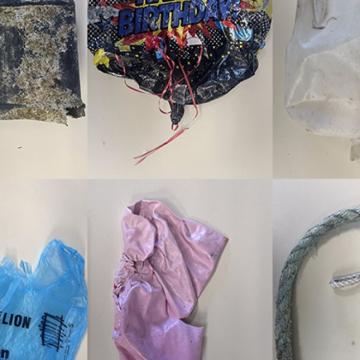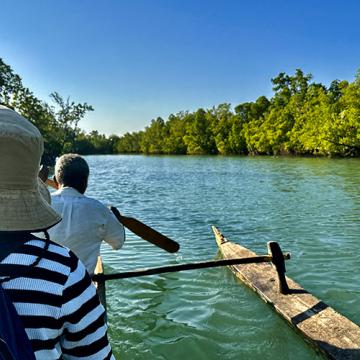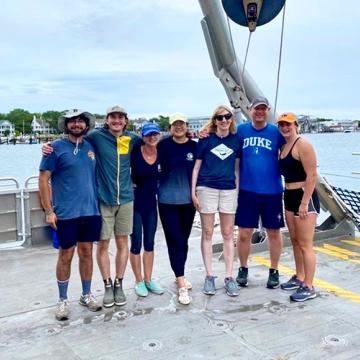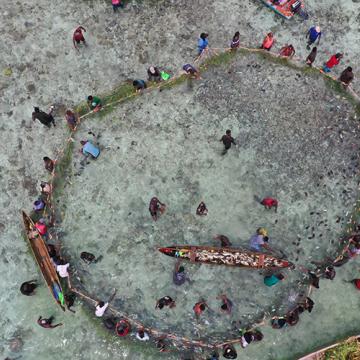-
NewsCrab behavior suggestive of wound-tending may improve coral tolerance to heat waves.
-
NewsSatellite records show spectacular vegetation growth coinciding with the first year of the pandemic. Researchers investigated whether lockdowns played a role.
-
NewsMeet the PlanetLab, learn more about its research focus, lab members' experiences in the lab and the opportunities the lab offers Duke students.
-
NewsDuke study reveals low levels of common contaminants but high levels of other elements in waters associated with an abandoned lithium mine.
-
NewsModeling experiments show Pacific warm and cold patches persisted even when continents were in different places
-
NewsAnimals that hunt in the dark with sonar may not be able to tell junk from squids
-
NewsMeet the Ocean Synthesis Lab, learn more about its research focus, lab members' experiences in the lab and the opportunities the lab offers Duke students.
-
NewsResearchers have found a chemical clue in Italian limestone that explains a mass extinction of marine life in the Early Jurassic period, 183 million years ago. Volcanic activity pumped out CO2, warming oceans and lowering their oxygen levels. The findings may foretell the impact climate change and oxygen depletion might have on today’s oceans.
-
NewsAn international team of scientists has revealed high levels of toxic metals in global phosphate fertilizers using a variant of the element strontium to uncover such metals in soil, groundwater and possibly the food chain.
-
NewsMeet the Hunt Lab, learn more about its research focus, a lab member's experience in the lab and the opportunities the lab offers Duke students.
-
NewsResearchers in North Carolina have created a coastal evolution model to analyze how coastal management activities on barrier islands, meant to adapt to sea-level rise, interact with natural processes that would otherwise keep barrier islands above water.
-
NewsThis year’s global Earth Day theme is “planet vs plastics”, and calls for the rapid phase out all single-use plastics.
-
NewsDuke University’s Marine Geospatial Ecology Lab led a team of researchers that mapped the population density of North Atlantic right whales worldwide to predict and help avoid harmful, even fatal, exposure to commercial fishing and vessel strikes.
-
NewsMarine Protected Areas must be flexible and responsive, not absolute
-
NewsMeet the Vengosh Lab, learn more about its research focus, PhD students' experience in the lab and the opportunities the lab offers Duke students.














